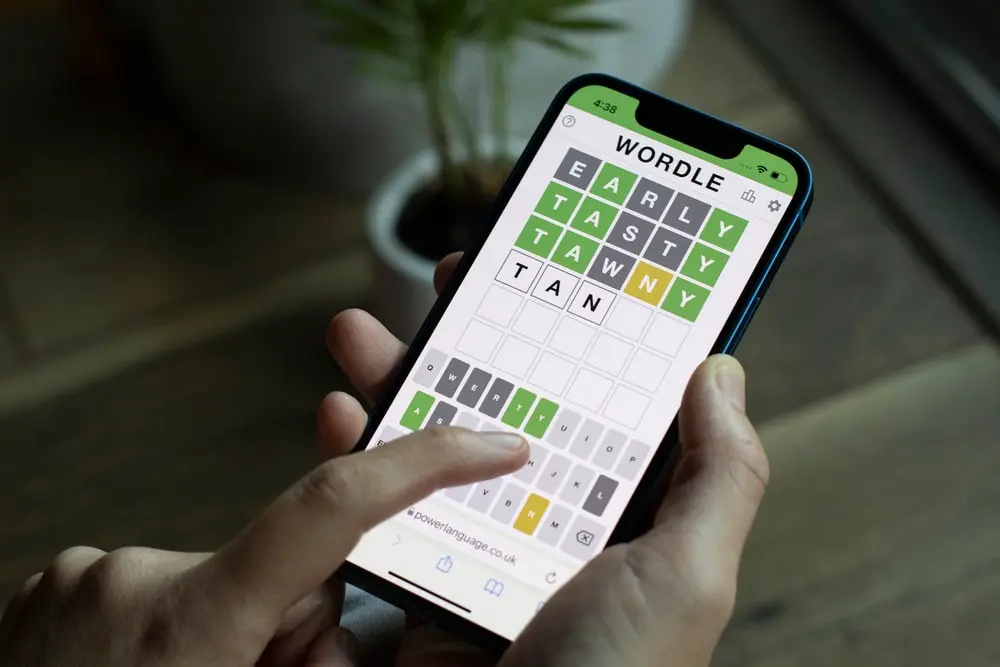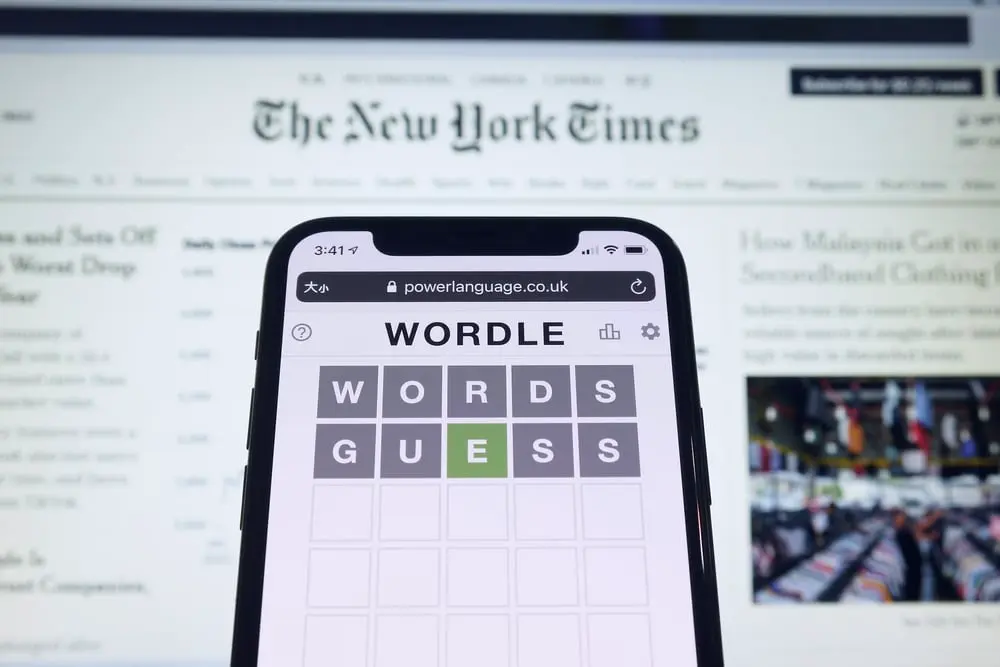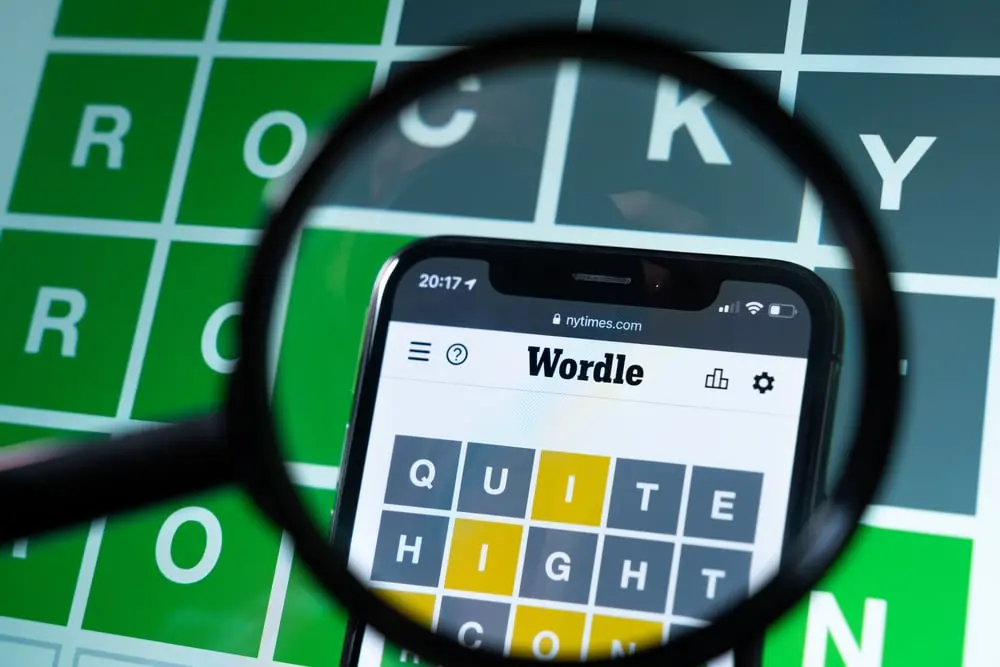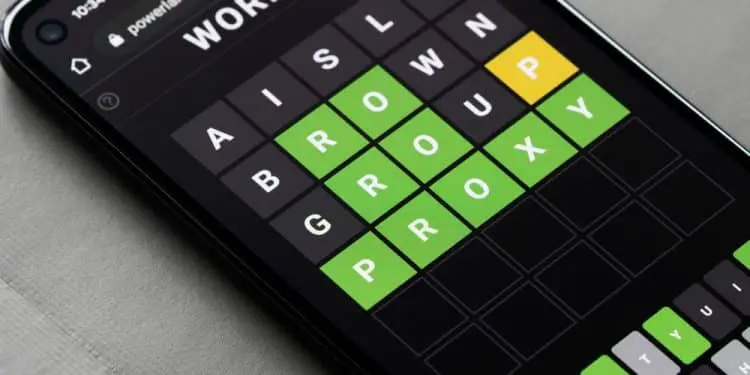What is Wordle?
Wordle is an online word game created by Welsh software engineer Josh Wardle, who originally invented the game to keep his fiancée and himself occupied over the Covid-19 lockdown. What was originally a labour of love between two spelling bee fanatics has turned into a worldwide sensation that is played by millions daily. Wardle has also made a small fortune out of this particular labour of love, earning a 7-figure sum from the New York Times when they purchased the game in 2022.
One of the most interesting things about Wordle’s influence on pop culture is the ream of adaptations and clones that have followed the mobile game’s original success. Many other creators have jumped on the bandwagon of Wordle’s success and created their own slice of digital popularity. There has been the erotic, 18+ version of the game, Lewdle, the music spotting version, Heardle, the 4-word quote version, Quordle, and so on… These adaptations aren’t originally licensed by Josh Wardle, they have simply capitalised off his success.
The premise of the original version of Wordle is to guess a mysterious 5-letter word in 6 goes. Each time you enter a word as a guess, you will get colour-coded clues that help you figure out the answer. If a letter turns green, that means it is in the word and it is in the position it should be, and if a letter turns yellow, that means the letter is in the word but not in the position it should be. These clues help you figure out what the final word could be.
It is a simple premise and it is free to play with no rewards other than personal glory.
But it has captured the hearts of millions and become a staple part of those people’s everyday routines.

Why do we love it so much?
Why?
I think because it is good, old-fashioned, simple fun.
It is reminiscent of the word games and puzzles we have all known and loved for decades but in a very quick and accessible format. It doesn’t take any particular skill set and it doesn’t take a lot of time out of your day, meaning most people have the time and ability for a bit of Wordle in their everyday routine.
Additionally, even though it is a single-player game, it has become a very social thing between friends, co-workers, and family members. The option to “share” your results, in the form of a colour-coded grid, allows you to send your Wordle experience to your loved ones directly through text, Whatsapp, Facebook messenger, or whatever you like to use. This makes the game a social back-and-forth activity that forms a fun, consistent bond between people.
That kind of thing typically makes a game stick around.
And that is why, I imagine, The New York Times so quickly picked up on the game and bought it for themselves. The buzz around Wordle grew tremendously in a short space of time, thanks to people sharing their experiences with others directly and on social media. The term Wordle with the date is very often one of the highest-ranking trends at any given time, check the statistics if you want to see for yourself.

What went wrong?
But this buy-over from The New York Times is also where things took a bit of a dip in Wordle’s history.
Once the game changed hands, there seemed to be a noticeable shift in the words that were used in the answers. There was a period of time when the words were much trickier to solve and people found this frustrating. Words like, “knoll” confused users who didn’t even know the meaning of the word, answers like “favor” upset British players as the American spelling was confusing for them, and there was even an entry that had two possible answers (…come on, Wordle).
This phenomenon led to keen players lashing out online and saying the game had quickly become pretentious and inaccessible. It was just getting “too hard” and people weren’t enjoying it anymore.
This is the point in time in which we saw people drop off from playing the game, losing their streaks, and even opting for some of the clones and alternatives on the market to get their Wordle fix without the unnecessary strain.
All good things come to an end… right?
But was it an end? Was this the end of Wordle as we know it? Of course not! The power of the Internet always makes it easier for the public’s voices to be heard and it wasn’t long before the new owners of Wordle were listening to players’ complaints.
Thank goodness.

Has Wordle got back on track?
It seems that, since these complaints, Wordle has gone back to easier and more straightforward word choices. They aren’t always easy, that’s for sure, but they have gone back to words that aren’t so tricky and fiddly to guess and that do appeal to a much wider audience. This has helped them regain popularity and cool down the social media anger that had arisen over “knoll” (which is a grassy hill, apparently).
There is something to be said for the fact that all things can never return to the level of their initial hype and excitement, and this proves true for Wordle. While it is still a huge player on the market and millions of people are clicking in to play it every day (me included), this drop in the middle of their success has definitely seen some lasting effects.
There is also simply the case of things getting less exciting over time and the fact that things online don’t stay number one forever. There is always the new thing that comes in and replaces the hype, that is simply how the Internet works.
In a post-pandemic world, everyone seems to love an Internet craze that involves a game, quiz, or puzzle that can be shared with friends, and Wordle has done exceptionally well to feed this appetite. But the word “craze” here is critical.
Will it stick around forever? Who knows.
Is it still good, honest fun for now? Absolutely.
And maybe that is all we should really care about for right now. A bit of fun, and a bit of widening our personal dictionaries.
It doesn’t need to last forever to have been good while it lasted.
Maybe “craze” can be their next answer of the day.
Like this blog? Then stick around and check out the rest of our blogs in our trends and technology section!

